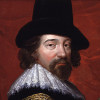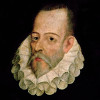“ For the enjoyment the mind feels must come from the beauty and harmony which it perceives or contemplates in the things that the eye or the imagination brings before it ”
Miguel de Cervantes, Don Quixote (1605). copy citation
| Author | Miguel de Cervantes |
|---|---|
| Source | Don Quixote |
| Topic | enjoyment imagination |
| Date | 1605 |
| Language | English |
| Reference | |
| Note | Translated by John Ormsby |
| Weblink | http://www.gutenberg.org/files/996/996-h/996-h.htm |
Context
“And in my opinion this sort of writing and composition is of the same species as the fables they call the Milesian, nonsensical tales that aim solely at giving amusement and not instruction, exactly the opposite of the apologue fables which amuse and instruct at the same time. And though it may be the chief object of such books to amuse, I do not know how they can succeed, when they are so full of such monstrous nonsense. For the enjoyment the mind feels must come from the beauty and harmony which it perceives or contemplates in the things that the eye or the imagination brings before it; and nothing that has any ugliness or disproportion about it can give any pleasure. What beauty, then, or what proportion of the parts to the whole, or of the whole to the parts, can there be in a book or fable where a lad of sixteen cuts down a giant as tall as a tower and makes two halves of him as if he was an almond cake?”
source


